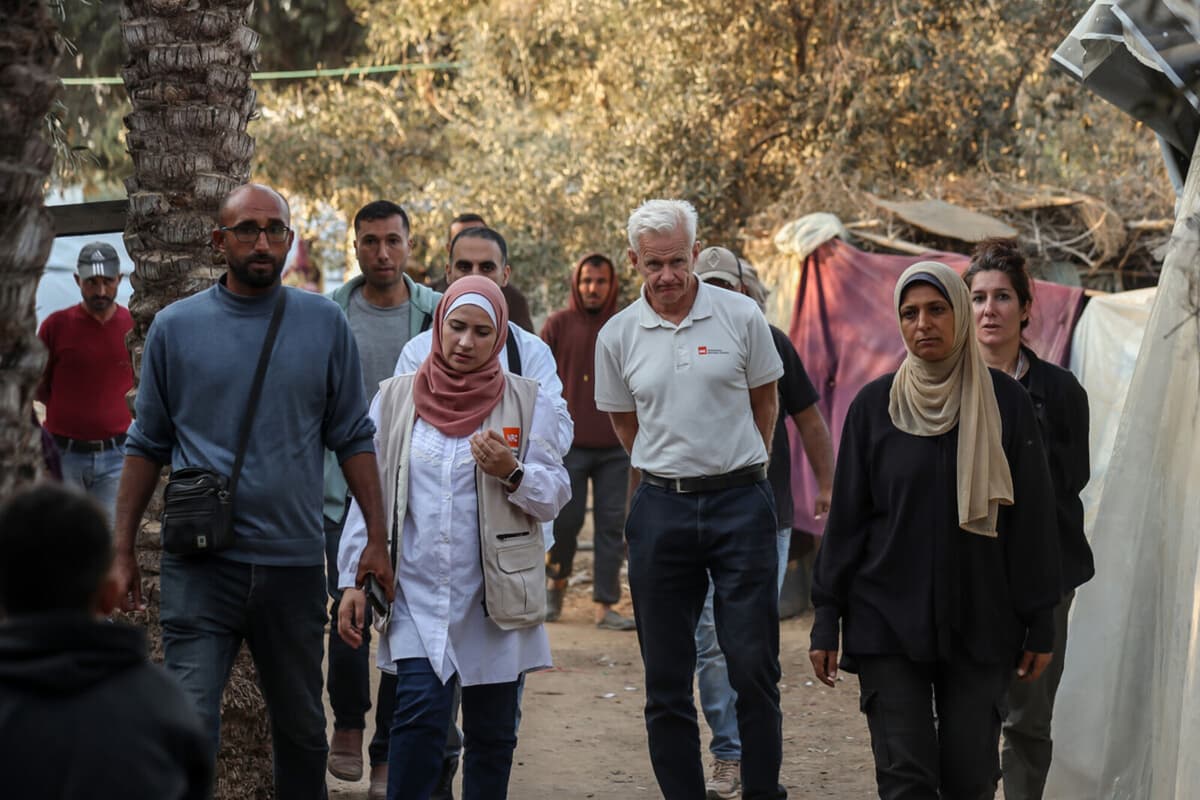Around 20 trucks from aid organizations are expected to roll in on Monday – just a drop in the ocean of the Gazans' needs.
They want to show that they're doing something, but they're not opening the border, says Jan Egeland, Secretary-General of the international aid organization NRC.
It's still uncertain whether and when Israel will allow a larger quantity of emergency aid to the starving population in Gaza.
Militarizing humanitarian work
Israel has, together with the USA, outlined a plan that involves private security companies being responsible for distributing food and essential aid – and not the trusted organizations and UN agencies that are already standing by with thousands of trucks.
The idea is "perverse", according to Egeland, who sees it as a way to militarize humanitarian work.
A party to a conflict should not decide who gets help in a disputed area. The need for help should be the decisive factor, he says to TT.
Donor countries and international organizations are unlikely to allow private companies to take part in their emergency aid.
There is no reason to introduce a system that goes against the DNA of all principled humanitarian organizations, said Jens Lærke, spokesperson for the UN's humanitarian coordination agency OCHA, to BBC earlier in May.
Advertisement
Must declare occupation
The only way for Israel to implement the plan would be to more or less finance it itself.
Israel says it wants to take control of the entire Gaza Strip on Monday. If the country openly declares an occupation, it also implies clearer responsibilities towards the occupied population, emphasizes Egeland.
In parallel with the eyewitness accounts from inside Gaza – of starving children who weigh only a few kilos and exhausted mothers who faint when trying to breastfeed their newborns – hawkish politicians in Israel are criticizing the decision to allow even a limited amount of food in.
At the same time as bombs are falling and killing hundreds of Palestinians every week, a large part of Gaza's population risks starvation.
People are now so weakened that they will die from any illness, says Egeland, emphasizing that the crisis is man-made.
This is a step away from catastrophe.
Around 100 aid organizations are standing by with thousands of trucks, filled with approximately 170,000 tons of aid outside Gaza's borders. Nothing has been let in during the ten-week-long blockade that Israel has imposed.
Around 20 are expected to be let in on Monday. Before the war, hundreds of trucks were needed every day to meet the Gazans' needs.
Almost the entire population of 2.3 million in Gaza is acutely malnourished. One in five risks starvation, according to the UN-supported IPC. WHO chief Tedros Adhanom Ghebreyesus went so far as to say that two million people – essentially the entire population of the area – are starving.






